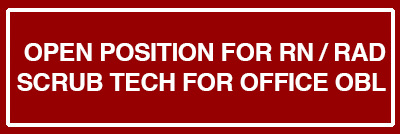Follow Us x
Stress Echocardiogram - Exercise or Dobutamine
What is it?
A stress echocardiogram or “stress echo” is a test that uses sound waves to record a moving picture of the heart. The function of your heart is examined before and after stress. If you are able to walk without difficulty, you will walk on a treadmill to make your heart work harder. If you have difficulty walking, an IV will be started and a drug called dobutamine will be given to you to make your heart work faster and stronger, as if you were walking. The resting images and the after-stress images will be compared. The test is used to check for coronary artery disease (blockage or narrowing of the arteries supplying the heart muscle).
Why you are having this procedure (symptoms/indications):
Your doctor may have ordered a stress echocardiogram to evaluate your shortness of breath or chest pain. You may have known or suspected coronary artery disease. The test may have been ordered to assess your exercise tolerance or you may be having the test to check your heart before having surgery.
Prep for the procedure:
You should not eat or drink for three (3) hours before the test. You should take your medicines with small sips of water.
What to expect:
You will have to remove your clothing above the waist and wear a gown. You will be connected to an EKG monitor and a blood pressure monitor throughout the test. You will be asked to lie on your left side to have pictures made of your heart. The lights in the room will be dim. The sonographer will place a probe (ultrasound transducer) with gel on it on your chest. The probe will be moved around your chest to see different views of your heart. After the resting images of your heart are made, the stress part of the test will start. You will either walk on the treadmill or be given the medicine to reach your target heart rate. You may be unable to reach your target heart rate due to symptoms. You should tell the sonographer or nurse if you have any discomfort. Once you have reached your target heart rate or the stress part of the test is stopped due to symptoms, the after stress images will be taken. The test will take about an hour to complete.
Risks:
There are some risks associated with the test. You may have chest pain or shortness of breath. Your blood pressure may increase or decrease. Dobutamine sometimes causes nausea or headache. Rarely, heart rhythm problems or heart attack can occur.
Post procedure instructions/limitations:
You may resume your normal activities following the test.
When to call your cardiologist:
If you develop chest pain after you leave our office.






